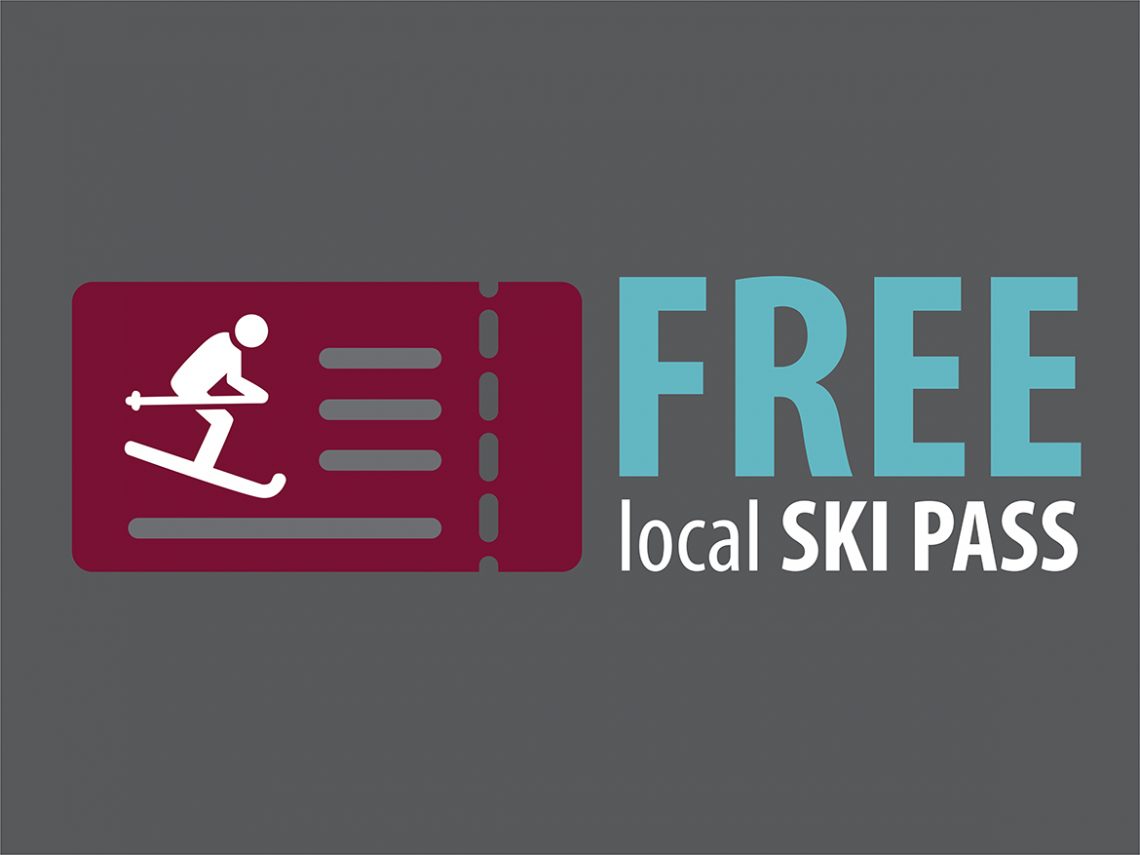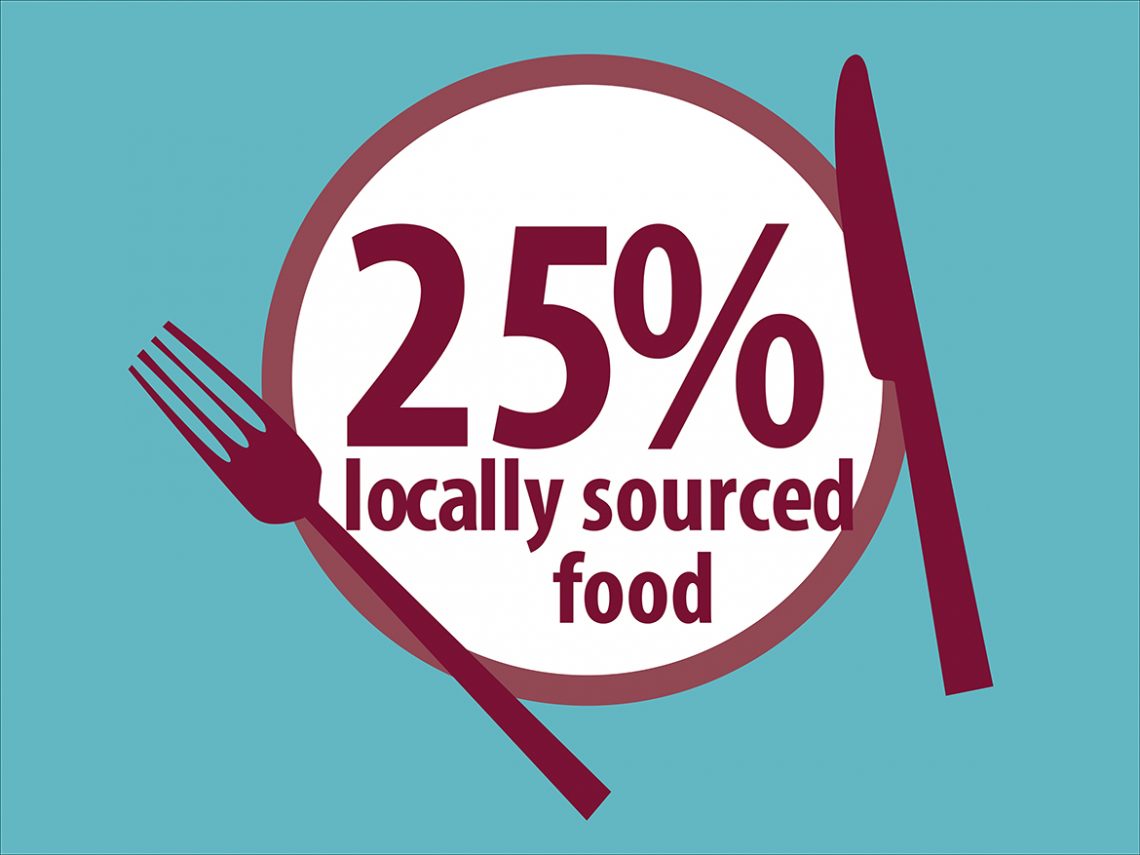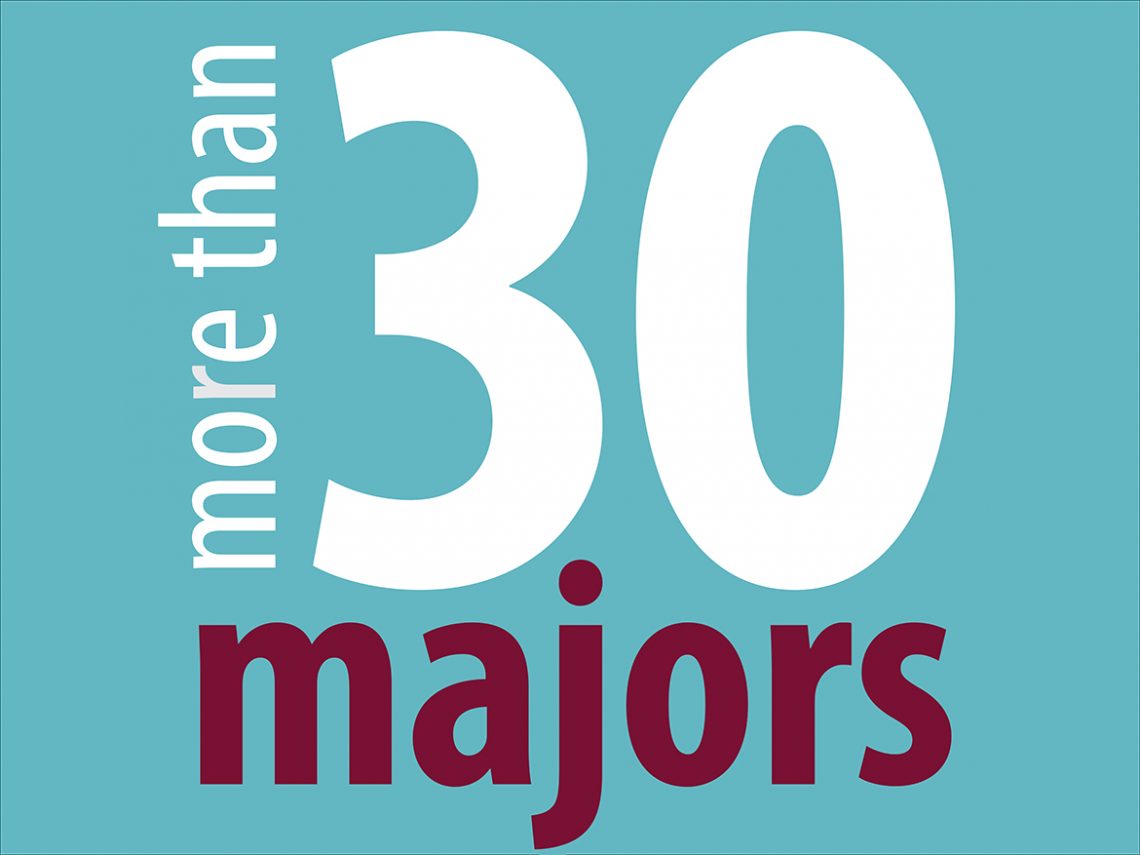Whether it’s been a year since you were last on campus or time better measured in decades, chances are good there’s been some change since you last visited Farmington.
To wit, competitive skiing is back (in a big way) as are master’s degree programs in education (also in a big way). In this new regular feature, we’ll re-introduce you to UMF, highlighting what’s distinctive about the University — and what’s worth telling the college-bound people in your life.
Infographics by Elizabeth LeClair

Thanks to a generous donation from Sunday River and Sugarloaf, all full-time UMF students receive a free season pass to ski at Titcomb Mountain, 10 minutes away from campus in nearby West Farmington. One of the last remaining club-operated ski areas in Maine, Titcomb features 16 alpine trails, several glades, and a terrain park served by two t-bars, as well as 16 kilometers of cross-country trails groomed for classical and skate skiing. (While gentle Nordic trails abound at Titcomb, its hillier K’s comprise a formidable race course. In February 2020, Titcomb will play host to the Maine Class A, B, and C boys and girls high school Nordic championships.) UMF students who are new to skiing and snowboarding can take advantage of free learn-to-ski-and-ride lessons at Titcomb taught by students in the University’s own Alpine Operations and Outdoor Recreation Business Administration programs.

In partnership with dining services provider Sodexo, UMF sources 25 percent of its scrumptious food within 175 miles of campus — and 100 percent of its whitefish from Maine’s coastal waters. By sourcing a quarter of its food from area producers, UMF supports local agricultural businesses and reduces its environmental footprint. (Less time in transit means the food is fresher and doesn’t require the burning of as much fossil fuel to get here.) And by plating less well-known or under-loved fish like pollock, UMF is helping to drive demand for a broader range of abundant, responsibly harvested species from the Gulf of Maine. This, in turn, diversifies fishermen’s options and helps build stronger economies in the state’s coastal communities.

While recreational and cultural opportunities abound close to campus, UMF annually offers students upwards of 20 low-cost off-campus trips through its Weekend Adventures and Excursions program. Recent getaways have included camping in Acadia National Park, Broadway shows in New York City, Pirates games and museum tours in Portland, sightseeing in Philadelphia, shopping in Freeport, skiing and snowboarding at Sugarloaf, whitewater rafting on the Kennebec River, and Celtics games, harbor cruises, and museum tours in Boston.

Given its contemporary mission as a public liberal arts college, today’s undergraduate students at UMF take courses in the Arts, Humanities, Mathematics, Natural Sciences and Social Sciences. The University offers students opportunities to pursue bachelor’s degrees in more than 30 majors and programs of study — everything from Actuarial Science, Biology, Business Economics, and Creative Writing to Elementary Education, Geography and Environmental Planning, Mathematics, Psychology, and Special Education. And our broad range of certificate and multi-degree, pre-professional programs — 3+2 Counseling, 3+3 Law, ELL Certificate, and Addiction Rehabilitation Certificate, just to name a few — put students on accelerated career pathways. See all our programs of study at umf.maine.edu/academics

